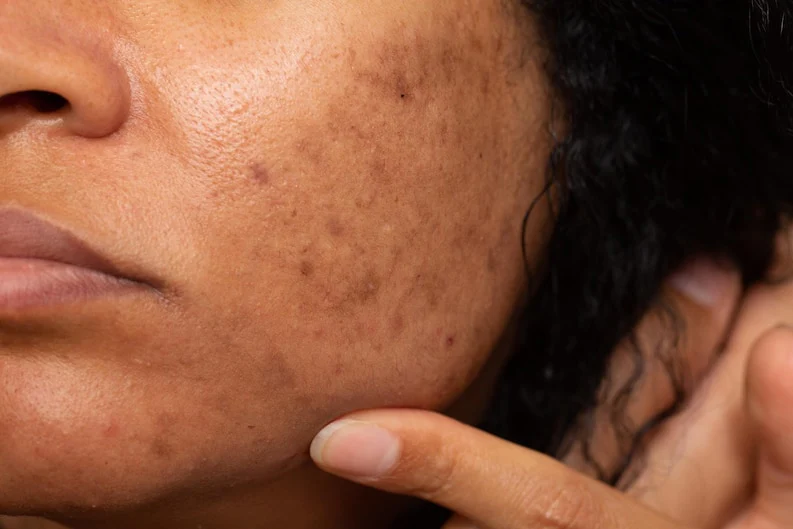Here’s How to Live with HIV-Positive Person
In order to know how to live with HIV-positive person, understand that it requires empathy, support, and understanding. With advancements in medical treatments and a better understanding of the virus, individuals with HIV can live long, fulfilling lives.
However, it is crucial to create a safe and inclusive environment that promotes their physical and emotional well-being.
In this article, we will explore practical strategies and provide guidance for those who want to support and live harmoniously with an HIV-positive person.
Insights On How To Live With HIV-Positive Person
Educate Yourself: The first step towards supporting an HIV-positive person is to educate yourself about HIV/AIDS. Familiarize yourself with the basics of the virus, its transmission routes, and the available treatment options.
By being knowledgeable, you can dispel misconceptions and provide accurate information when needed. Trusted sources like healthcare providers, support groups, and reputable websites can provide up-to-date information. As it is, this is one of the ways on how to live with HIV-positive person.
Promote Open Communication: Maintaining open lines of communication is essential in any relationship, and it becomes even more crucial when living with an HIV-positive person. Encourage them to share their experiences, concerns, and emotions without judgment.
Foster an environment where they feel comfortable discussing their health, treatment, and any challenges they may face. Remember to actively listen, offer support, and respect their privacy.
Confidentiality and Privacy: On how to live with HIV-positive person, respecting the confidentiality and privacy of an HIV-positive person is paramount. Disclosure of one’s HIV status should be their choice, and it is essential to honor their decision.
Avoid sharing their status without their explicit consent, as it is a personal matter that they may choose to share with selected individuals on their own terms.
Offer Emotional Support: Living with HIV can bring emotional challenges such as anxiety, depression, and stigma. Be a source of emotional support for your loved one. Encourage them to express their feelings and actively listen without judgment.
Offer reassurance, understanding, and empathy. Remind them that they are not alone and that you are there to support them through difficult times.
Encourage Adherence to Treatment: Consistent adherence to antiretroviral therapy (ART) is vital for maintaining the health of an HIV-positive individual.
Encourage your loved one to follow their treatment plan, including taking medications as prescribed and attending medical appointments regularly. Offer reminders or help them set up systems to ensure they stay on track with their medication regimen.
Promote a Healthy Lifestyle: Living a healthy lifestyle can help boost the immune system and overall well-being of an HIV-positive person. Encourage them to maintain a balanced diet, engage in regular physical activity, and get enough rest.
Avoid activities that may compromise their immune system, such as smoking, excessive alcohol consumption, or drug use. Offer support in adopting healthy habits and engage in these activities together.
Safety Precautions: While the risk of HIV transmission in day-to-day activities is low, it is still important to take necessary precautions. Educate yourself about the ways HIV is transmitted and the steps you can take to prevent transmission.
Encourage safe sex practices, such as using condoms consistently, if applicable. It is important to consult healthcare professionals for accurate information regarding transmission risks.

Addressing Stigma and Discrimination: Stigma and discrimination continue to be major challenges for individuals living with HIV. Be an advocate for your loved one by challenging misconceptions and fighting against HIV-related stigma.
Promote inclusivity, educate others about the realities of HIV, and encourage empathy and compassion. Participating in awareness campaigns and supporting HIV/AIDS organizations can also make a significant impact.
Seek Support: Caring for an HIV-positive person can sometimes be emotionally challenging, and it is essential to seek support for yourself as well. Connect with support groups, counseling services, or online communities specifically tailored for caregivers of individuals with HIV.
Sharing experiences and seeking guidance from others who understand the unique challenges can provide you with valuable insights, encouragement, and emotional support.
Caring for an HIV-positive person requires knowledge, empathy, and a supportive approach. By understanding the basics of HIV, promoting medical care and healthy lifestyle choices, providing emotional support, addressing stigma, and seeking support for yourself, you can effectively care for and support an HIV-positive individual.
HOW ABOUT HOW TO TAKE CARE OF HIV-POSITIVE PERSON?
Caring for an HIV-Positive Person
Here Are Some Practical Steps For Providing Support And Assistance
Taking care of an HIV-positive person requires a compassionate and informed approach. With proper care, support, and adherence to treatment, individuals living with HIV can lead healthy and fulfilling lives. In this article, we will still provide practical steps and guidance on how to effectively care for an HIV-positive person, ensuring their physical, emotional, and mental well-being.
Understand the Basics: Educate yourself about HIV/AIDS, its transmission routes, and available treatments. Learn about the specific needs and challenges faced by people living with HIV. Stay updated on medical advancements and treatment options.
This knowledge will help you provide better care and support to the person you are caring for and on how to live with HIV-positive person.
Encourage Medical Care: Support the individual in maintaining regular medical appointments and adhering to their prescribed treatment plan. Help them keep track of medication schedules and assist in organizing and refilling prescriptions. Encourage open communication with healthcare professionals to address any concerns or questions.
Promote Healthy Lifestyle Choices: A healthy lifestyle plays a crucial role in managing HIV and promoting overall well-being. Encourage the person to follow a balanced diet rich in fruits, vegetables, whole grains, and lean proteins.
Help them establish a regular exercise routine that suits their abilities and preferences. Promote good sleep habits and stress management techniques.
Medication Adherence: On how to live with HIV-positive person, consistent adherence to antiretroviral therapy (ART) is vital for effective HIV management and this is what you let the individual know. Support the person in taking their medications as prescribed, ensuring they understand the importance of adherence. Help them set up reminders or alarms, organize pillboxes, or use smartphone apps to facilitate medication adherence.
Provide Emotional Support: Living with HIV can be emotionally challenging. Offer a listening ear, empathy, and understanding. Encourage open conversations about their feelings and concerns. Validate their emotions and provide reassurance. Help them connect with support groups or counseling services that specialize in HIV-related mental health support.
Address Stigma and Discrimination: Stigma and discrimination are significant issues faced by people living with HIV. Be their advocate and help create a safe and inclusive environment. Challenge misconceptions, educate others about HIV, and promote empathy and compassion. Support their decisions regarding disclosure of their HIV status, respecting their privacy.
Encourage Self-Care: Taking care of oneself is crucial for the overall well-being of a person living with HIV. Encourage them to engage in activities they enjoy, practice self-care routines, and pursue hobbies and interests. Assist them in finding resources for relaxation, stress reduction, and self-expression.
Practice Universal Precautions: While the risk of HIV transmission in day-to-day activities is minimal, it is important to follow universal precautions to prevent the spread of infections. Encourage proper hygiene practices, such as handwashing, and provide guidance on safe handling and disposal of sharps or bodily fluids. In healthcare settings or when providing personal care, use appropriate personal protective equipment if necessary.
Foster a Supportive Environment: Create a supportive and non-judgmental environment for the person living with HIV. Encourage open dialogue, respect their privacy, and maintain confidentiality. Offer support in maintaining social connections and help them engage in activities that promote a sense of belonging and well-being.
Conclusion:
Caring for an HIV-positive person involves a comprehensive approach that addresses their physical, emotional, and mental well-being. By understanding the basics of HIV, providing support, promoting healthy lifestyle choices, and addressing stigma, you can make a significant positive impact on their quality of life.
Remember to take care of yourself as well and seek support when needed. Together, we can create a compassionate and inclusive community for individuals living with HIV.
How To Manage High Cholesterol

A graduate of Computer Science and Information Management Technology. Diploma – Caregiving, Certificates – Dementia and Diabetes Awareness and Management. A researcher, blogger, songwriter, singer and acoustic guitarist. Born in an environment where natural talents such as healing are imparted at our natural birth. This natural talents of healing is the result of our genetic inheritance and the training from family environment.















